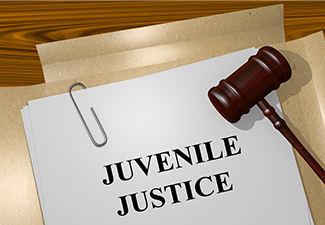Expunging Juvenile Convictions
May 2, 2024
 Contrasting popular belief, juvenile convictions are not always erased at the age of 18. In fact, these convictions—such as arrests, charges, and adjudications—can have long-term consequences on a person's record, even after they have reached adulthood. This can hinder an individual's ability to find employment, housing, and educational opportunities in the future.
Contrasting popular belief, juvenile convictions are not always erased at the age of 18. In fact, these convictions—such as arrests, charges, and adjudications—can have long-term consequences on a person's record, even after they have reached adulthood. This can hinder an individual's ability to find employment, housing, and educational opportunities in the future.
This is why expungement laws were created—to give individuals a second chance at a clean record. Gene Ognibene Associates believes in that second chance, and Attorney Ognibene is here to help you move toward that brighter future.
Understanding Juvenile Convictions
For years, the juvenile justice system has operated with the goal of reform over punishment. However, the reality of a juvenile record's permanence is often overlooked. Entering adulthood with a juvenile conviction can tarnish the canvas of one's potential, marking them with a label that often proves impossible to live down.
Juvenile convictions are those that occur when someone under the age of 18 is found guilty of committing a crime. These convictions are usually handled in juvenile court, which has a different set of rules and procedures than adult criminal court. In many cases, the records of these convictions are not automatically sealed or expunged once the individual reaches the age of 18, although some are.
Some common crimes include:
Theft and Burglary: Records of theft and burglary are not automatically sealed and can often remain visible to background checks unless expunged through legal proceedings. These crimes are treated with varying degrees of severity based on the value of the stolen goods and the circumstances of the burglary.
Vandalism: Vandalism, including graffiti, is typically not automatically sealed. Expungement depends on the extent of the damage and whether it's categorized as a misdemeanor or a felony.
Drug Possession: Juvenile records for drug possession are not automatically sealed in many jurisdictions. The approach to sealing or expungement can vary significantly, with some states offering more lenient policies for minor drug offenses compared to others.
Assault: Cases of assault, especially those considered to be serious or involving weapons, are generally not automatically sealed. The nature of the assault and the presence of any injuries can influence the possibility of sealing such records.
Underage Drinking and DUI: These offenses are not automatically sealed and can affect an individual's record for years. Some states might offer diversion programs for first-time offenders, which can aid in avoiding a permanent record.
Shoplifting: Often not automatically sealed, with the possibility of expungement depending on the value of the items shoplifted and any prior offenses. Shoplifting is frequently treated more leniently than other theft crimes in juvenile court.
Juvenile convictions, whether public or private, can significantly restrict a minor's future. From misdemeanor offenses to more severe felonies, the repercussions vary but are universally restrictive. Minors can face an uphill battle securing jobs and housing, enlisting in the military, obtaining financial aid, and even finding stable relationships due to the stigma associated with a criminal record.
The Process of Expungement
While the path to expungement may seem daunting, it is the gateway to a new beginning for many. This legal process involves the sealing or removal of one's juvenile record, offering a much-needed clean slate.
Here is the expungement process:
Evaluation: Begin with a legal evaluation to determine eligibility for expungement based on the specific juvenile conviction and the laws of the jurisdiction.
Gathering Records: Collect all relevant documents and records of the juvenile conviction(s), including court documents and arrest records.
Petition for Expungement: File a petition for expungement with the court that handled the juvenile case. This step usually requires a detailed application and sometimes a filing fee.
Notification: Notify all involved parties of the expungement request, including the district attorney's office and any victims or witnesses as required by law.
Hearing: Attend a court hearing, if necessary, where arguments for and against the expungement will be presented before a judge.
Judge's Decision: Wait for the judge to make a decision. If the expungement is granted, the juvenile record will be sealed or destroyed.
Confirmation: Obtain a court order confirming the expungement of the record. This document serves as proof that the record has been sealed.
Notify Reporting Agencies: Send a copy of the expungement order to credit reporting agencies and any other organizations that may have the conviction on file, requesting the removal of the record from their databases.
The importance of expunging juvenile convictions cannot be overstated. It is a concrete step toward a future unburdened by past mistakes, a future ripe with opportunities and hopeful prospects. For parents and teens alike, this guide serves as a clarion call to action, igniting the pursuit of a clean slate. It is only through proactive steps and a commitment to change that the weight of a juvenile conviction can be lifted, allowing for a brighter and uncompromised horizon.
Get Support Now
If you or someone you know is ready to explore the possibility of expunging a juvenile conviction, do not hesitate to reach out for help. By nurturing an environment of support and understanding, your criminal defense attorney can pave the way for a generation that is brave, restored, and ready to thrive.
Make the call, file the petition, and claim your right to a clean slate. The future is yours to create, and expunging your juvenile conviction is that first step toward a brighter one.
